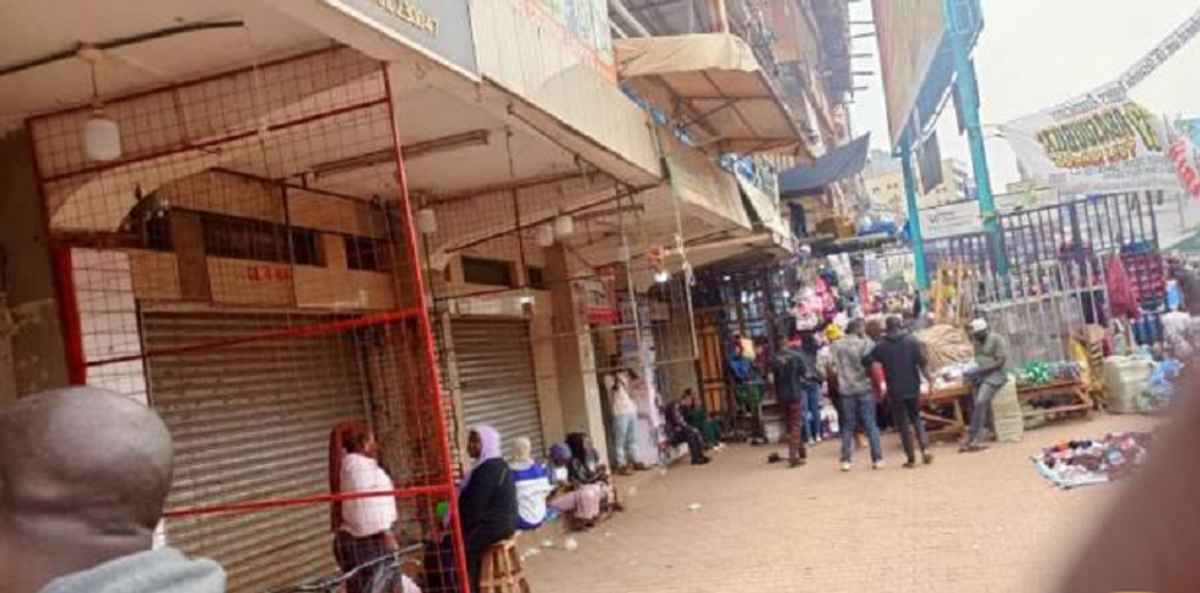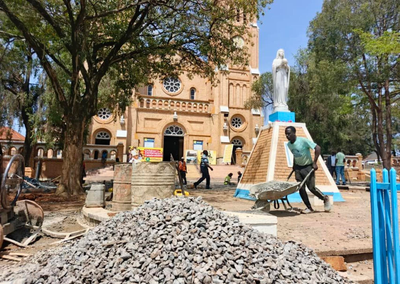
Kampala’s city centre was gripped by tension on Tuesday as a strike by local traders protesting high taxes and foreign competition disrupted business activity, prompting police to arrest 16 people allegedly threatening shopkeepers who defied the strike.
Shops along major streets, including Nabugabo Street and Arua Street, remained closed as traders staged the demonstration, expressing frustration over what they describe as unfair taxation by the Uganda Revenue Authority (URA) and the growing presence of Chinese investors in the retail sector. While some arcades in areas like Kikuubo stayed open, many businesses complied with the strike either voluntarily or under pressure.
Traders Demand Tax Reforms
John Mukibi, a cosmetics dealer, said the protest was meant to highlight the difficulties faced by small business owners under the current tax system.
“The situation can no longer enable us to operate,” Mukibi said. “With so many taxes imposed on us, it’s just unbearable. Every day, there are new taxes from URA.”
Traders have also called for the resignation of URA Commissioner General John Musinguzi Rujoki, citing frustrations with the Electronic Fiscal Receipting and Invoicing Solution (EFRIS). They claim the system has not been adequately explained, leading to double taxation and additional operational costs for small businesses.
Reports indicate that some traders who attempted to open their shops were intimidated by groups of youths allegedly hired to enforce the strike. These individuals reportedly threatened shopkeepers, warning them to stay closed or face consequences.
In response, Kampala Metropolitan Police Spokesperson Patrick Onyango said the authorities deployed a heavy police presence throughout the city centre to protect business owners and deter potential criminal activity.
“We’ve protected people’s property and lives because, in situations like this, some individuals take advantage to rob and threaten those who don’t want to participate in protests,” Onyango said. “As a result, we’ve apprehended 16 individuals who were attempting to coerce business owners into closing their shops.”
Acting Chairperson of the Kampala City Traders Association (KACITA), Issa Ssekitto, urged traders to unite in advocating for reforms while emphasizing the need for practical solutions.
“We are going through tough times, yet many refuse to acknowledge it; we want these issues addressed by URA, including reduced customs duties, lower rental charges, and additional tax concessions,” Ssekitto said. “But I also call upon all traders to unite for the big call for better change.”
The strike highlighted the tension between local businesses and regulatory authorities amid increasing foreign competition and a perceived complex tax system. Police have vowed to maintain security while ensuring that trade and livelihoods are not disrupted.
The events underscore the challenges facing Kampala’s SMEs, where balancing compliance with taxation, operational costs, and competitive pressures remains a daily struggle for entrepreneurs.














Marlene Luwedde
Leave a Comment
Your email address will not be published.